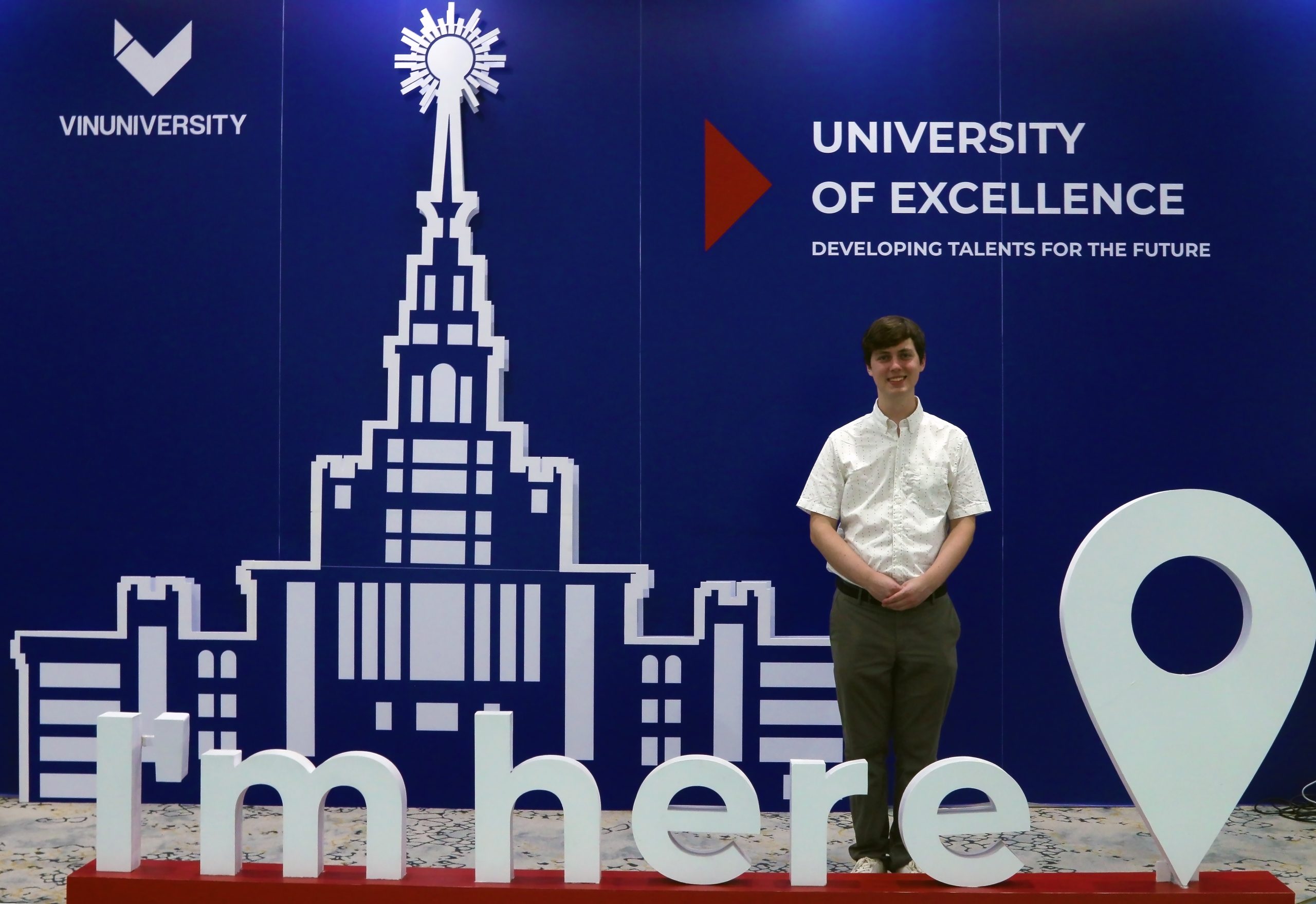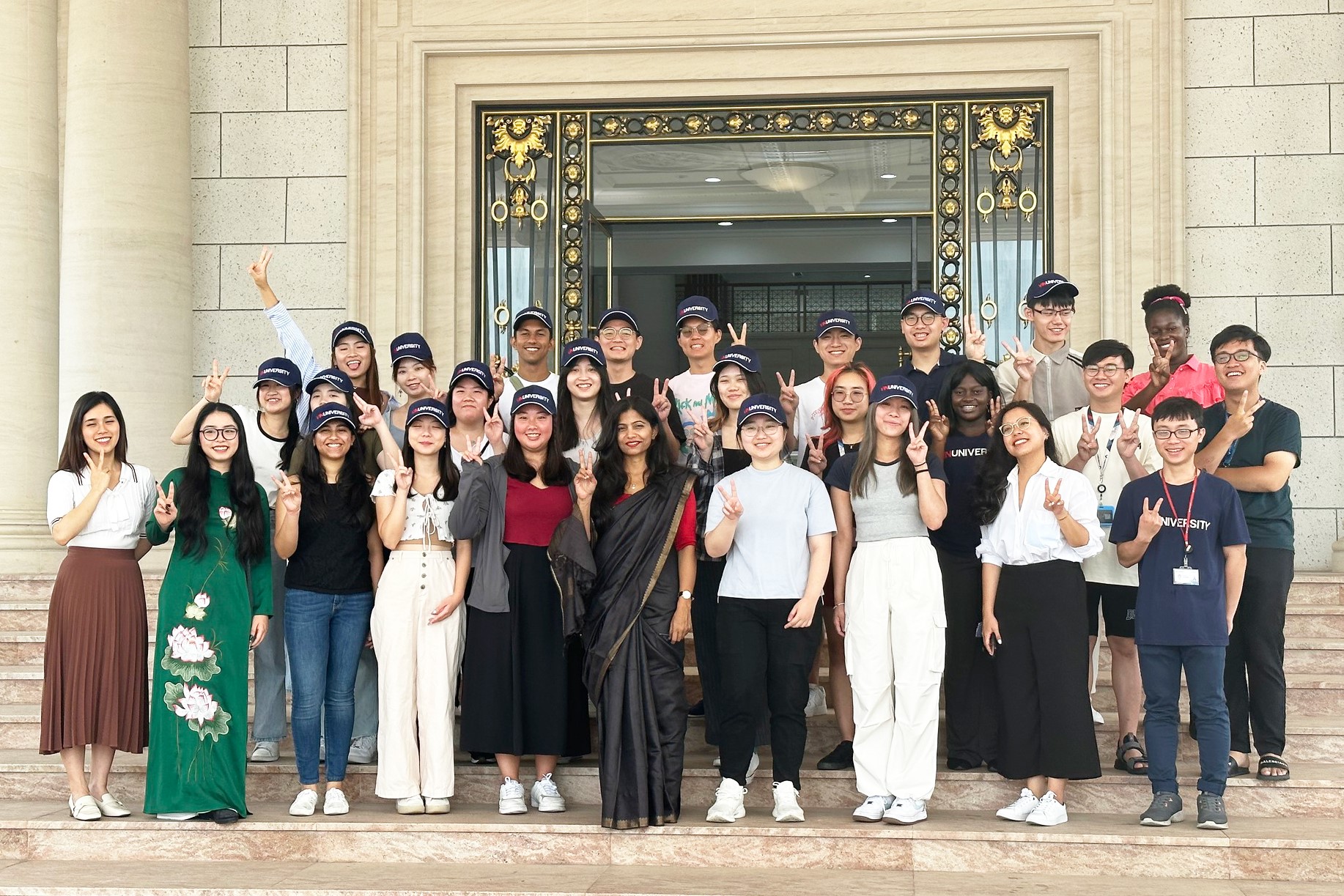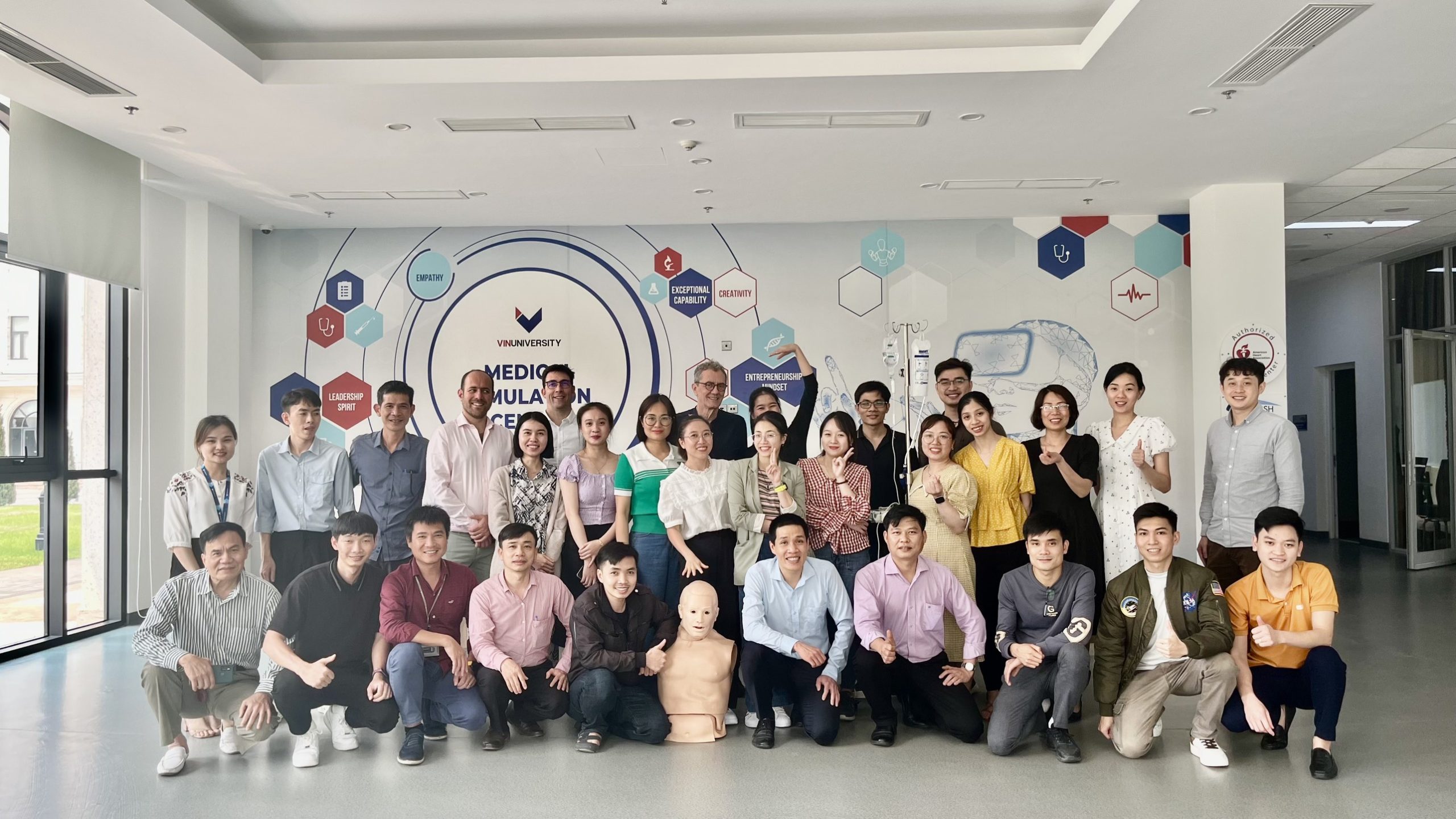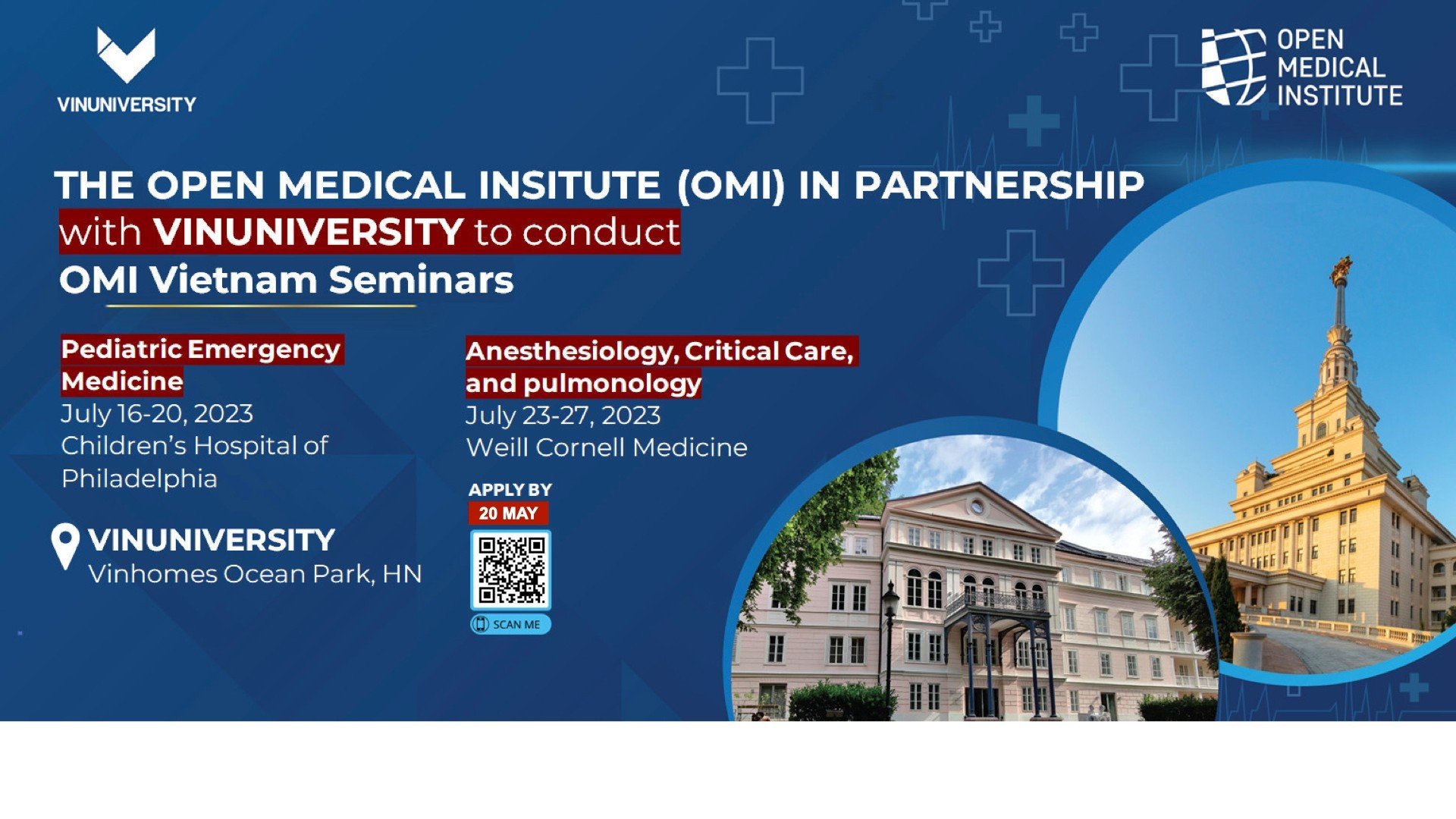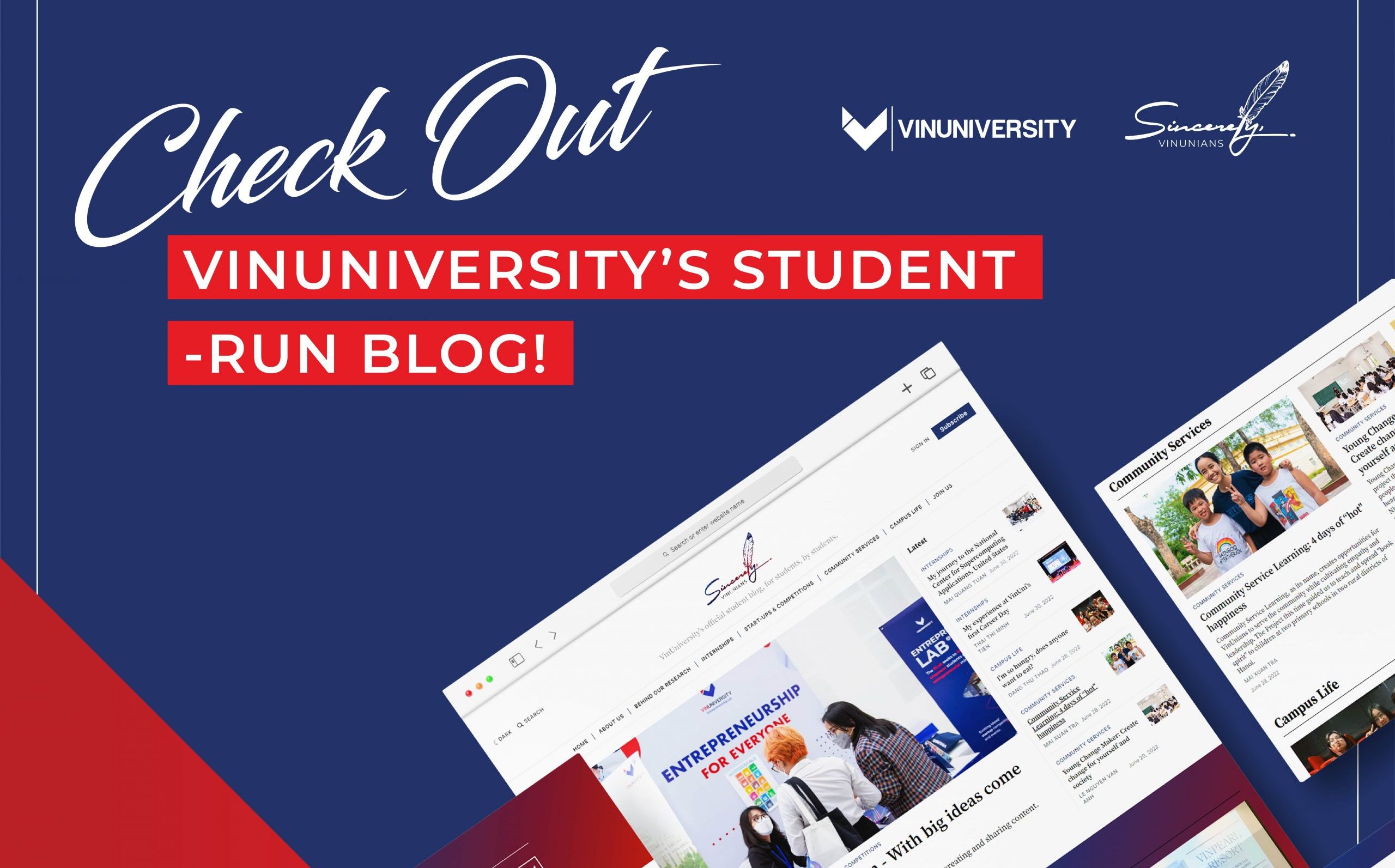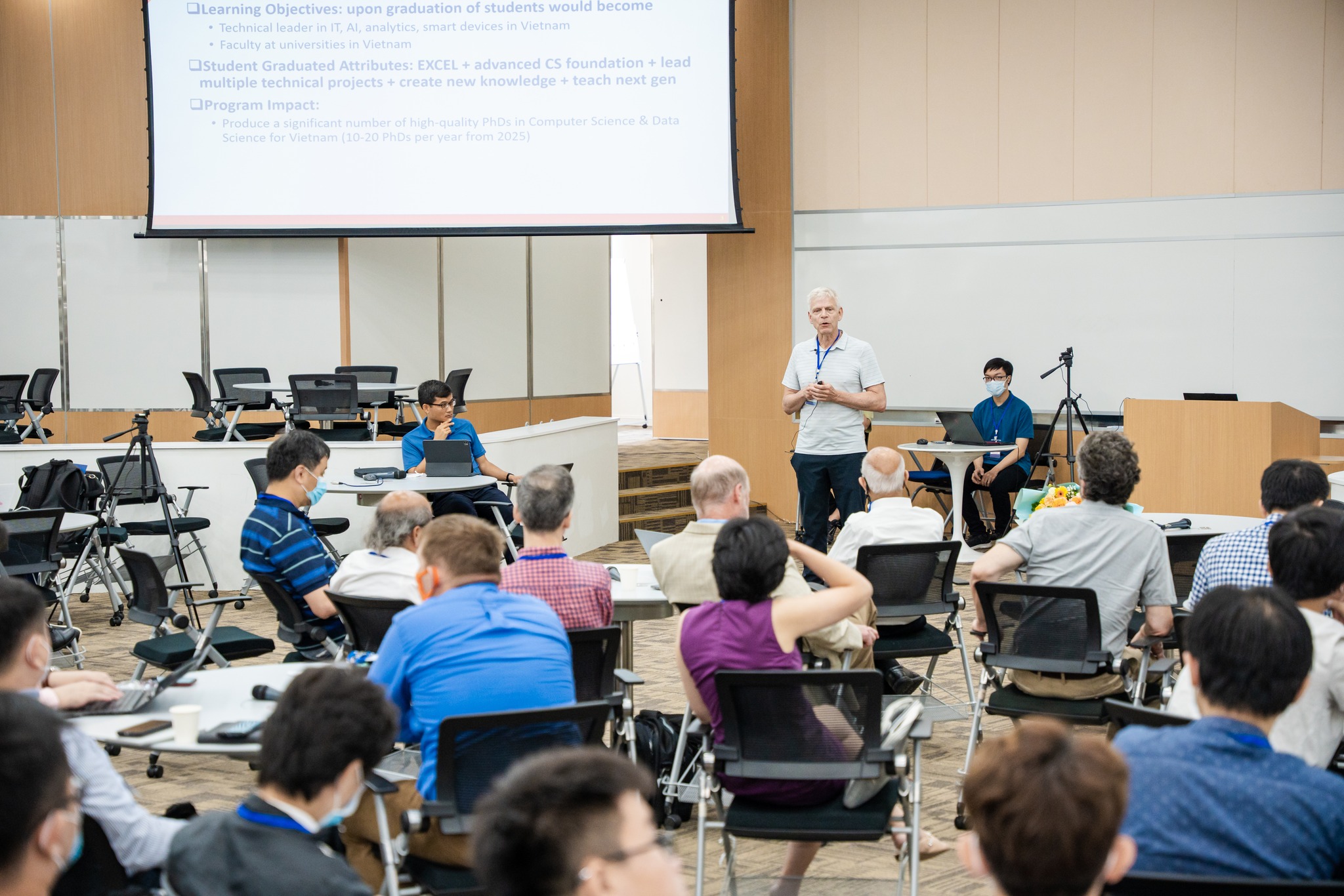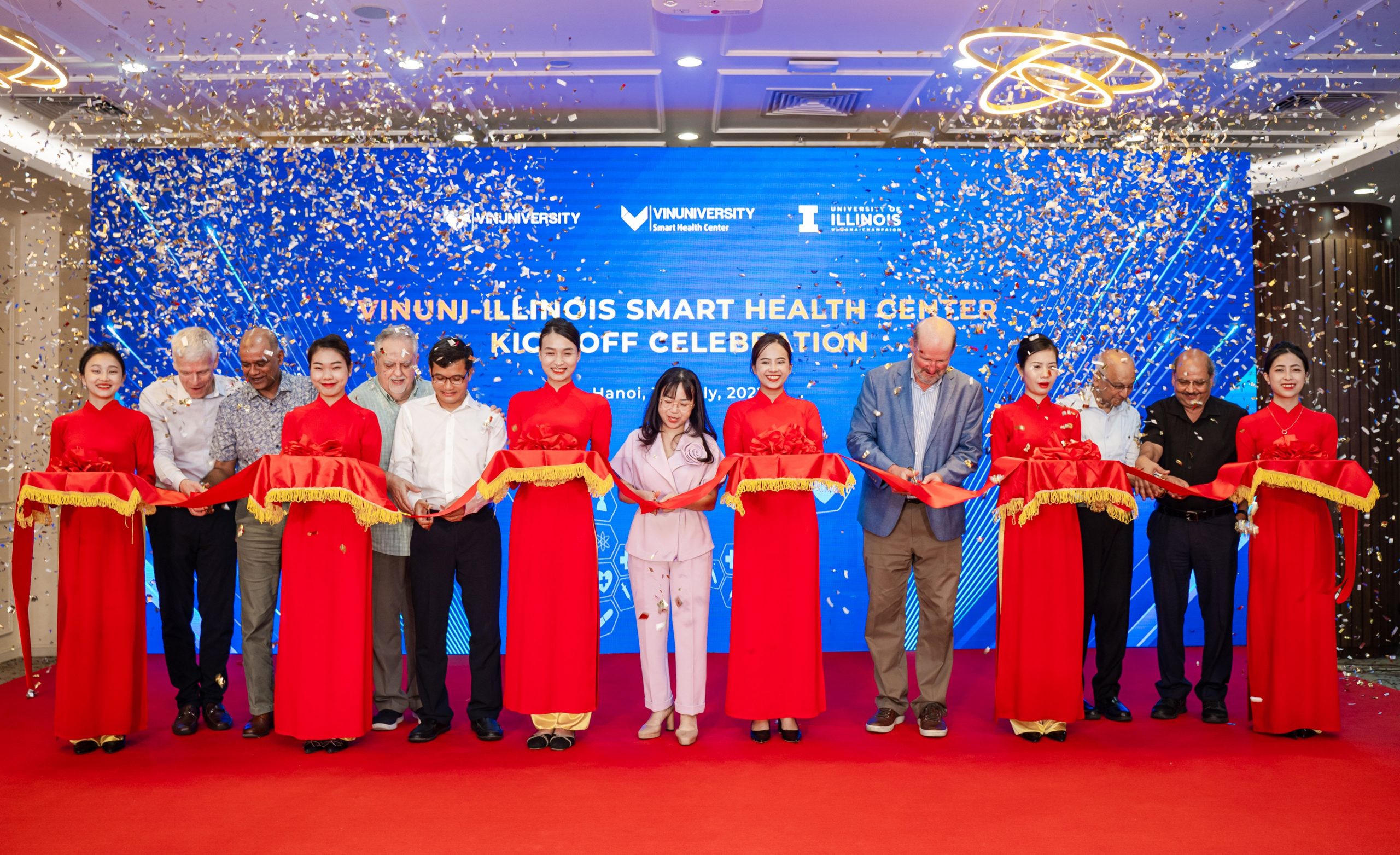In the history of chess, Nguyen Anh Khoi is the second winner of both the world’s U10 and U12 categories after France’s Etienne Bacrot, making him the first Vietnamese chess player to win two World Youth Championships. In September 2019, 17-year-old Anh Khoi was awarded the title of International Grandmaster by the International Chess Federation (FIDE), becoming the 11th Grandmaster from Vietnam. However, the ambition that Anh Khoi has nurtured since childhood is actually medicine, because he has always wanted to contribute to protecting the health of himself, his family, and society.
Among the first cohort of VinUni students, Anh Khoi made a strong impression on the Health Sciences faculty in the interview round – not only because of his outstanding achievements in chess, but also because of his passion for medical knowledge as well as the bigger picture of science and technology in the world. This way, he can see medical skills not only as tools for practice, but also the breakthrough point for applied research.
Recently, Anh Khoi had an interview with Tuoi Tre Newspaper to share about his journey at VinUniversity, as well as his perspective on the battle between humanity and COVID-19. To Anh Khoi, in a way, this battle is similar to a game of chess. We would like to introduce the article: “Chess master Nguyen Anh Khoi: The battle against COVID-19 is like a game of chess”.
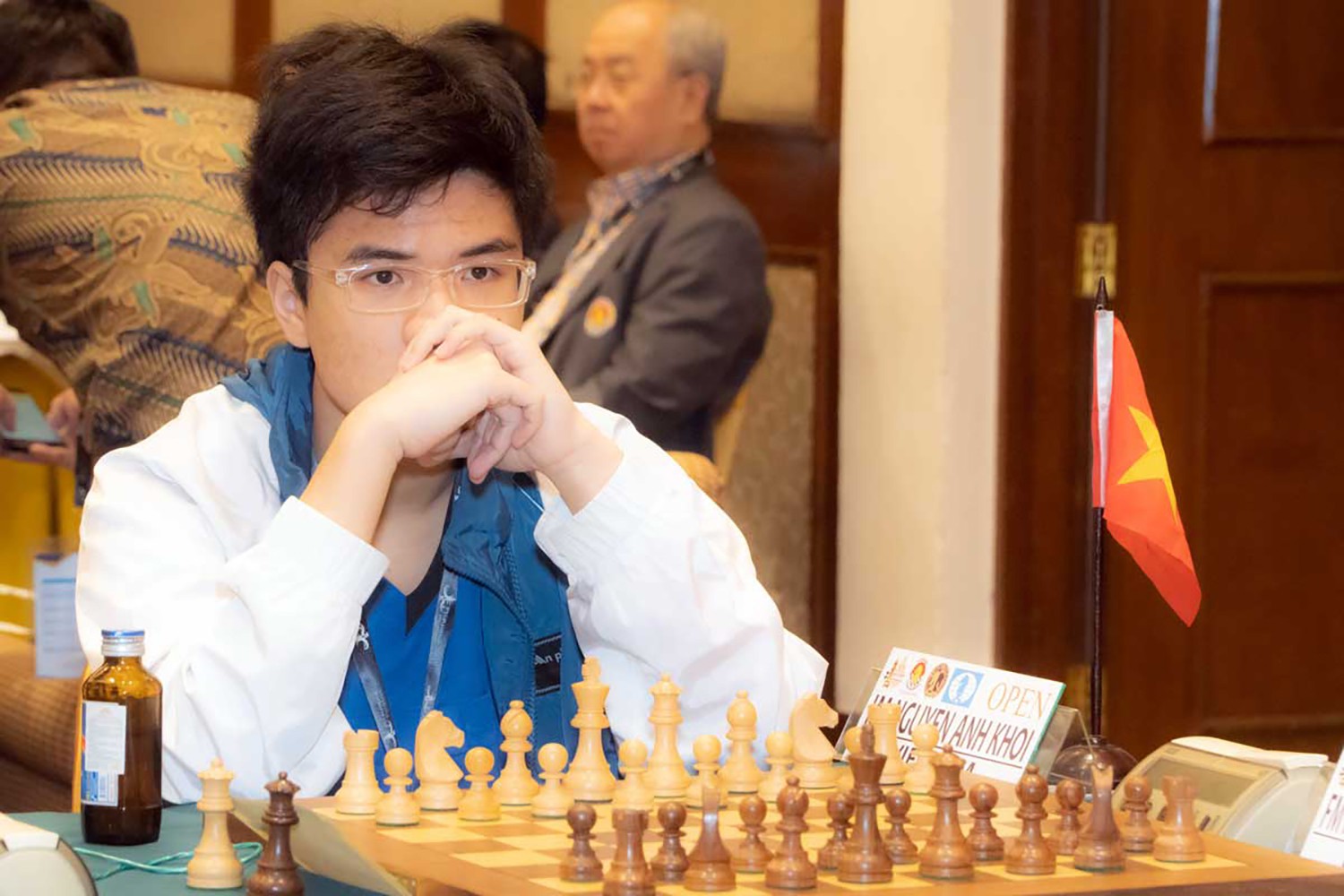
How do you feel about the first steps of your journey at medical school?
During the first year, I only learned basic scientific knowledge as the foundation for more advanced studies in the upcoming years, but I still accumulated a lot of great knowledge. For example, I learned about the overlapping mechanisms by which cells independently carry out their life activities without any conscious control of activity management.
We also had access to practical biochemistry classes in laboratories and first-aid training at VinUniversity’s innovative simulated hospital, along with a lot of advanced equipment to support students’ knowledge acquisition. Additionally, our professors shared many meaningful stories about medicine in real life with us.
Being a medical student seems to have opened a new horizon in your pursuit of your childhood dream, but it also poses new challenges. How does your typical day at VinUniversity look like? Does the pandemic significantly affect your learning?
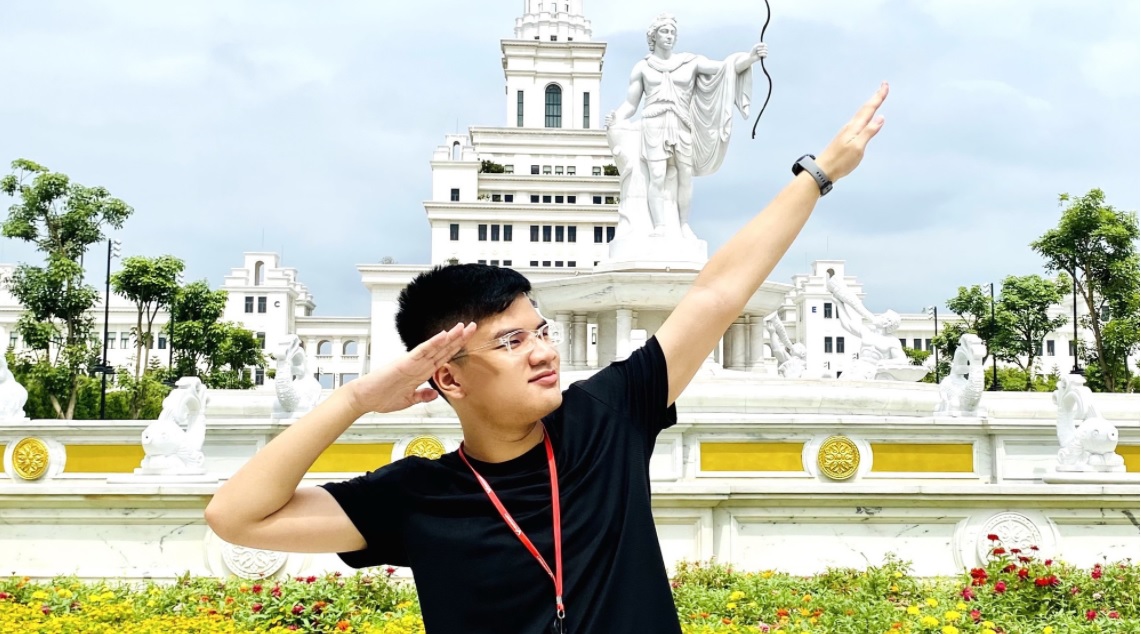
Studying medicine means I have to work harder because there is definitely a huge workload. However, with the innovative teaching methods at VinUniversity, students are not forced to learn in traditional ways.
At VinUni, students have a lot of freedom in arranging and allocating their study time according to their own capacity and other extracurricular engagements, including different sports, arts, and academic clubs. Personally, I still have time outside of my studies to learn about what interests me.
Since the return of the COVID-19 pandemic in late April and early May 2021, the school has replaced in-person learning in lecture halls with online learning. This transition has been very smooth because right from the beginning, VinUniversity has developed and gotten students familiarized with the school’s digital learning management system.
All tasks from assigning coursework, disseminating study materials, submitting assignments… are done through this digital management system. VinUni’s library is also fully digitalized, enabling convenient access to any book or document through the library’s electronic portal. The only difficulty is that students are not allowed to perform hands-on practice sessions by themselves, and can only watch the lecturers’ pre-recorded videos. However, this situation is inevitable to ensure safety in the event of the pandemic.
Did the new environment make you change your living habits as well as your thoughts?
The most significant change when I came to VinUni was being away from my family. In the past, even when I was going to a competition away from home, my dad or mom would always accompany me for support. Here at VinUniversity, I have to solve all the problems in my daily life by myself, from simple things like calculating the time to get up in the morning to prepare for class, buying food and drinks, etc…. to handling repairs for damaged appliances.
Fortunately, the dormitory provides a lot of modern and convenient facilities, so things are not too difficult for me. Except for homesickness, I am now used to an independent lifestyle after a year of studying at VinUniversity.
Besides this, the learning environment at VinUni is also quite unique. Students of different disciplines still have various opportunities to interact and study together (a class can include students from health sciences, business administration, as well as computer science).
In addition to world-class faculty from all over the globe, VinUniversity also has a very diverse student body including high school students from domestic public schools, students from international schools, and a number of seniors who had studied for a year or more at universities abroad. So we have a lot to share and learn from each other.
Entering the medical profession, what do you believe and aspire to achieve?
My aspiration when joining the medical profession is to contribute to protecting the health of myself, my family, and society. Health sciences have long attracted my attention because of the extremely complex scientific mechanisms for operating a biological “machine” that, in theory, would never need a handyman to fix or interfere with
But reality shows that it is very easy to harm our own health, whereas maintaining it is much more difficult. Even if you understand a certain health problem well and try to avoid or treat it, there are still chances of failure.
Currently, I have not decided on a major because I am still in the basic stages of learning. In the near future, when I have gained more in-depth understanding, I will decide my direction for the future.
What do you think about the COVID-19 pandemic?
Medicine in general is quite similar to playing chess. On one side, you have the human body, which is full of biological mechanisms and scientific measures to protect itself. On the other side, there are all kinds of external physical, chemical, and biological forces ready to rip through the opponent’s defense.
A typical example is the COVID-19 pandemic. The medical sector has tried its best to protect our health with scientific measures such as social distancing, disinfection, medicine, and ventilators. When countries began deploying vaccination campaigns around the world, it seemed that the game was about to end and people could soon return to their normal lives.
But the enemy (coronavirus) quickly changed its attack strategy, launching a series of highly contagious variants such as the Delta variant and soon the Lambda variant, with high resistance to vaccines. This forced countries that were confident in their ability to fight the pandemic thanks to wide vaccination coverage to return to their original social distancing measures. It’s very similar to a never-ending game of chess.

Expert chess players always seek to fully exploit the mistakes of their opponents, regardless of whether the opponent is happy or sad, rich or poor, sick or healthy. So does the coronavirus. The virus doesn’t care about people’s circumstances or feelings, nor does it have courtesy, compassion, or fear.
Coronavirus has exploited every loophole in our pandemic prevention strategies. Therefore, human mistakes in the fight against COVID-19, such as not limiting social contact, refusing or delaying vaccination … have resulted in steep declines in health and even loss of human lives.
I’m only a freshman, so I can only follow along with the battle between the COVID-19 pandemic and our scientific progress through the press. As a medical student, I hope to soon participate in campaigns and projects with the goal of protecting and improving people’s health.

